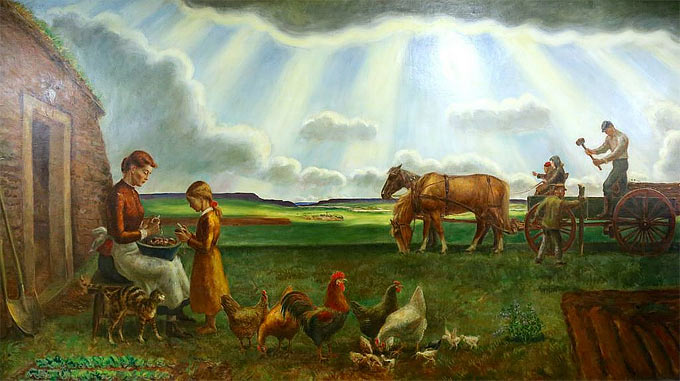Practical Skills for Hands On and Preparedness Viability

Most professional worker skills today are hinged with our modern day way of life. The majority of people in the United States generally work in services rather than manufacturing / hands-on.
Preparedness for the ‘here and now’
Preparedness for the potential ‘after’
Having practical skills are beneficial for the now and potentially the ‘after’. ‘After’ meaning a time of post-collapse, a depression era perhaps.
Those skills that involve a trade, working with your hands, or anything that will assist your sustainability may be particularly valuable in that sense.
Our ancestors of generations ago had many practical skills. It was pretty much mandatory for survival back then and a part of their way of life. You needed to know how to do a lot of things yourself.
Today’s generation do not need practical skills in that context because things can simply be bought. We trade our modern skills for currency which in turn buys what we need. It works quite well actually. Until it doesn’t…
So if and when it ever “doesn’t”, wouldn’t it be nice to know how to do something in the practical sense? A trade or using your hands and skills to better survive or even thrive during such a time?
That aside, I personally enjoy the practical skills learned in life. Even though I don’t technically need them during these modern times, I simply like working with my hands. I enjoy learning and doing some of the things our ancestors did, and I also enjoy learning the hands-on trades of today. I feel better in knowing that I can do some of these things “just in case”. Plus I get a sense of satisfaction knowing that I can do it.
What ever happened to the days when a good portion of people went to trade schools? Or when a fair number of people became apprentices at one trade or another?
Oh, that’s right, I almost forgot… our manufacturing jobs went overseas to increase corporate profits. Many of our traditional ‘hands-on’ skills became obsolete in this new modern world.
I suppose one may call that progress. I call it stupid. A well rounded society includes all classes from top to bottom. Unfortunately today there is a huge disparity between the top and bottom with hardly anything left in-between. But I digress.
It’s nearly impossible to detail a complete list of practical skills. One could look upon such a list in different lights, varying scenarios. A preferred list would change depending on circumstances or the hypothetical times when they would be applied (today versus post-collapse for example).
That said, one must start somewhere. Here’s a list of various practical skills for the preparedness-minded that came off my fingertips as I brainstormed. Feel free to add more.
Practical Skills for the Preparedness-minded
Archery
Baker
Beekeeping
Bicycle repair
Blacksmith
Bread making
Bushcraft
Butcher, skinning/prepare game
Camping
Candle making
Canning
Carpentry
Chickens for eggs/meat
Clothes making
Composting
Cooking
Dehydrating foods
Electrical
Fire making
First Aid, Medical
Fishing
Foraging, plant/food identification
Gardening, Farming
Gunsmithing
Herbology, Herbalism
Hunting
Knitting, Crocheting
Knot tying
Leatherwork
Livestock raising
Map reading, Pathfinding/Compass
Maple Syrup making
Masonry, stone work
Mechanics, general repair, machinery,
Metalwork
Moonshining
Orchards
Plumbing
Pottery
Rainwater harvesting
Reloading ammo
Root cellaring
Security, Guard duty/Tactical
Sewing, Mending
Shearing, Spinning Wool, Weaving
Shoe making
Shooting, marksmanship
Soap making
Tanner, Scraping/Curing
Teaching, tutoring
Trapping
Water sourcing and purifying, Well making
Weapon making, primitive/sling/bow/arrows/spear
Welding
Wood Gassification
Woodworking, Cabinet making
Are there any particular practical skills that interest you personally?
Things that you would like to learn?
